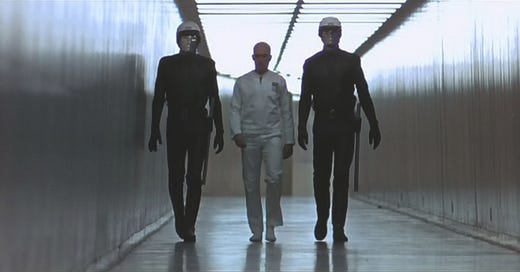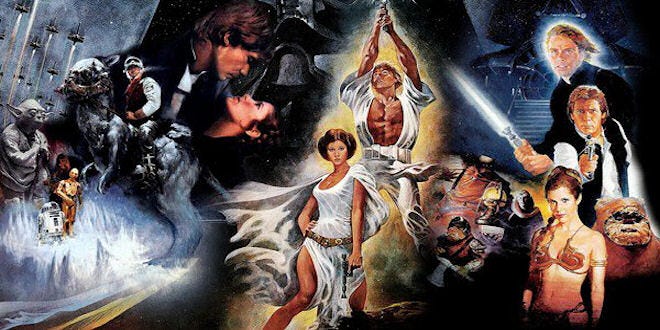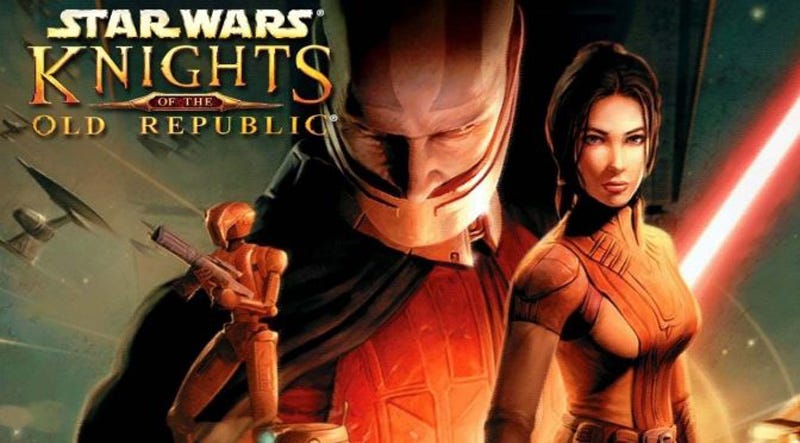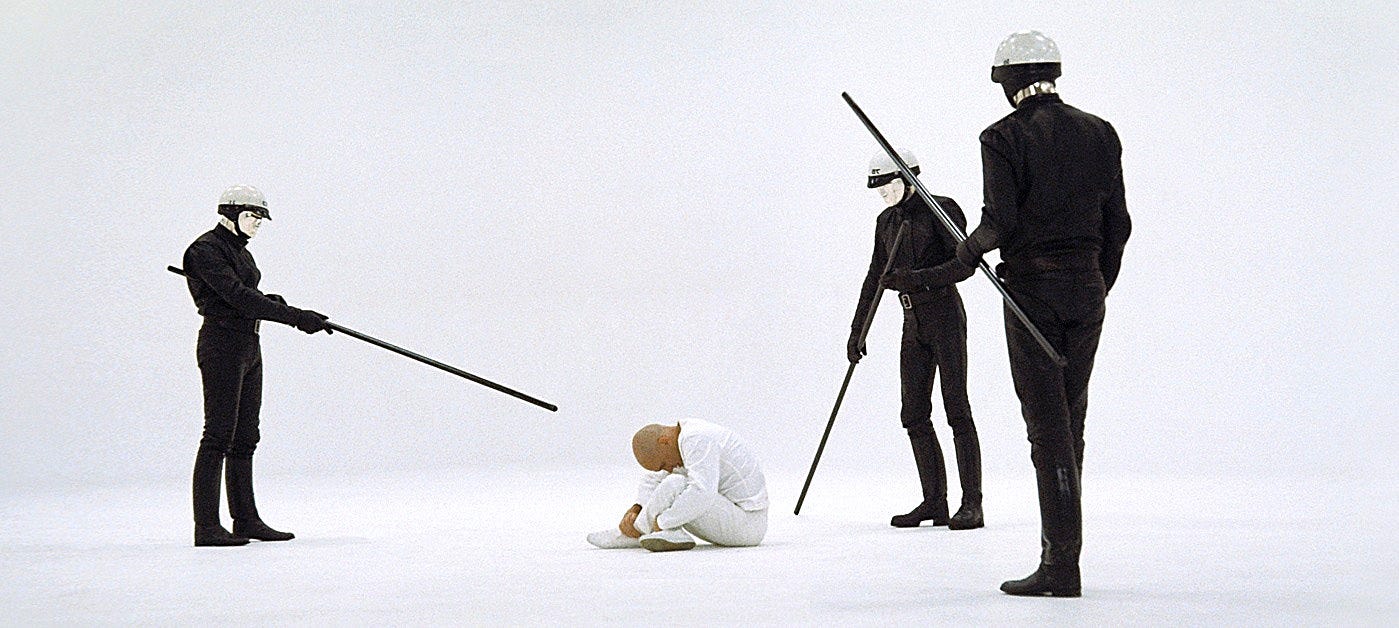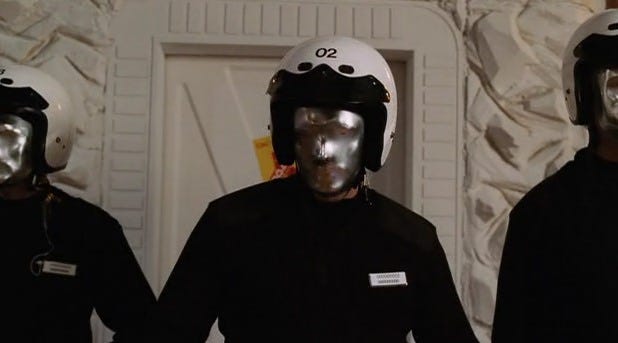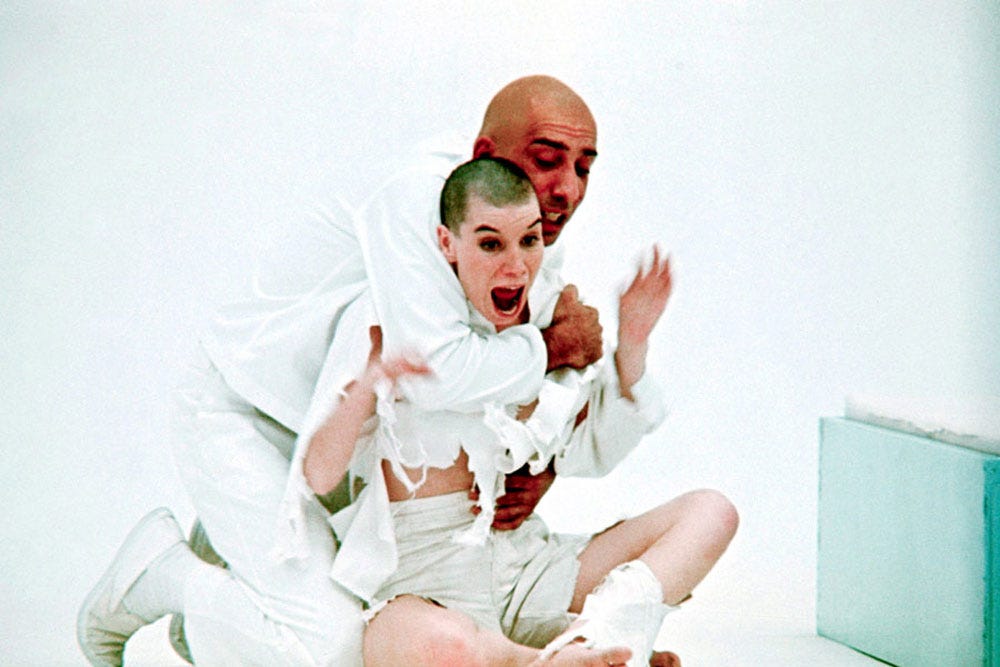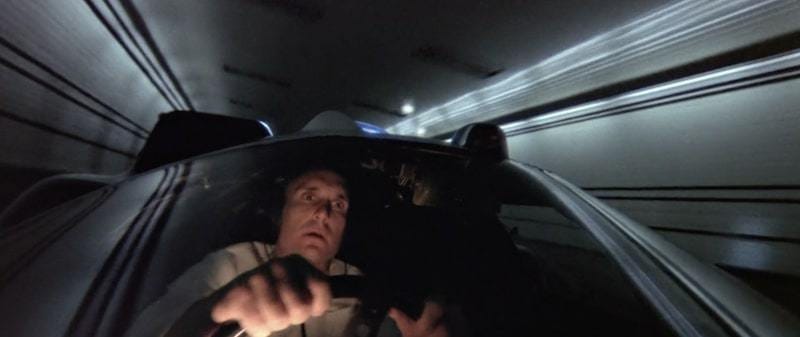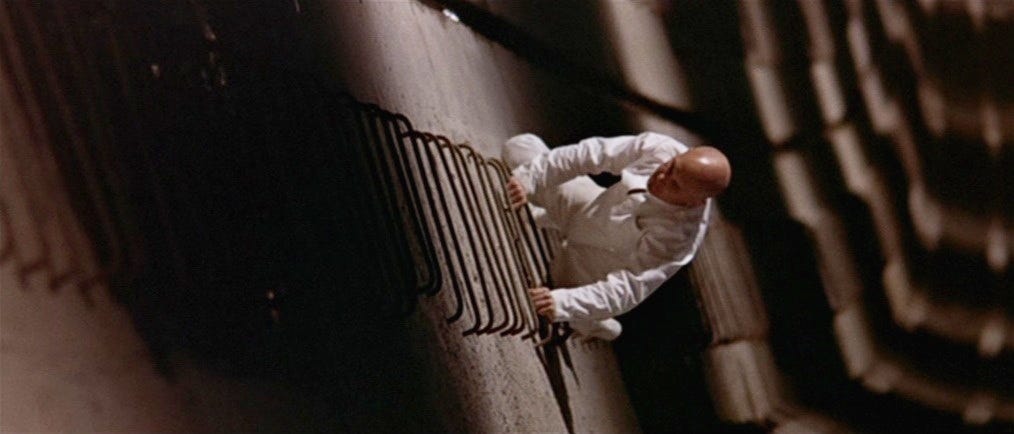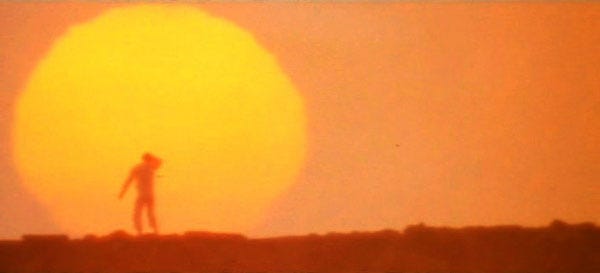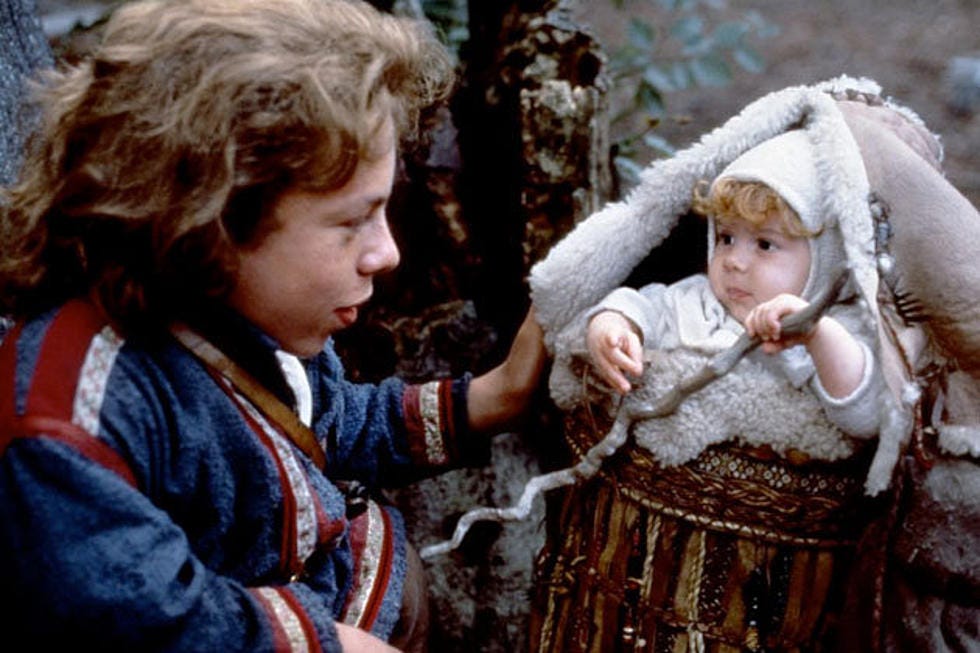By Dave Martel
Twelve-year-old Dave was a Star Wars guy. I fell in love with the trilogy, as many young men do, in my elementary years. It has spaceships, laser sword samurai, sexy ladies, weird aliens, and an epic final battle with a dark overlord who obliterates entire planets just to flex. What’s there not to like? To a young imaginative boy just starting to be mature enough to grasp more advanced literature and understand narratives on my own, Star Wars was accessible and hit all the right notes.
In 1998 the trailers for the next generation of Star Wars started to circulate. Although few of my neighborhood friends were into it, I was lucky enough to have some sci-fi bros in my Boy Scout troop. In fact, it was something our troop leaders and we all bonded over. And we were pumped.
1999 came and Star Wars Episode I: The Phantom Menace hit the theaters. My one scout buddy’s mom had a cousin who was a local theater manager and reserved tickets for us on opening day thanks to glorious nepotism. So we loaded up like sardines into one of the dad’s Yoder-motor (big v8 passenger van used by Mennonites) and we rolled up like 20 deep to see the film. The dads and the boys were all equally excited to share the experience. Wholesome.
For twelve-year-old Dave, Episode I was a little tedious. Darth Maul wasn’t as cool as Vader, the saber duels weren’t as intense and there was a lot of emotional struggle that just didn’t land well for me. Around that time my grandparents passed and my home life was a little rough so Qui-Gon Jinn’s death and Anakin Skywalker being separated from his mother felt a little close to home on some things. A twelve-year-old isn’t exactly looking to face his personal demons during a science fiction adventure movie.
Natalie Portman wasn’t nearly as hot as Leia, and neither of the duo of Qui-Gon or Obi-Wan were as dashing or cool as Han and Chewy. Yoda went from being a silly weird little creature on a mysterious far-flung planet to this solemn political figure. It was over-explained, overly serious, and aesthetically inferior. I liked it and was glad I went but I didn’t love it. It was a little disappointing.
Some time passed and after some really legendary Star Wars video games came out and the subsequent films followed, I warmed up to the second generation and the setting as a whole. My high school sweetheart even took me to go see Episode 3 for our first or second anniversary. She never saw Star Wars and was interested to see what all the hype was about. So we went with the caveat that I would then go see Harry Potter later that year.
Speaking of taking my women to see Star Wars. Years later I take my now wife to go see The Force Awakens.
What a horrendous piece of crap. Disney could have gone to a sci-fi convention, put on a blindfold, and played “Pin the Tail on the Neckbeard” and that greasy rando in sweatpants would’ve written a Wagnerian symphony compared to this miscarriage. When they put up writer job requirements for the position did they post “Looking for literal retards who know nothing about and/or hate Star Wars”?
And after that, I haven’t watched or cared about Star Wars at all outside of going back to rewatch the originals when I rediscovered the un-remastered trilogy on VHS in my attic. Disney is a big fat mess.
lol
So, years later after I dug back into fiction and began to really look hard into the defining elements of these traditions, I started to really reconsider Star Wars as a whole in the grand scheme of science fiction proper. Whether we like it or not, whether it has become an abject skin suit or not, Star Wars is firmly part of the foundational cultural milieu of our epoch. But is it science fiction? Should George Lucas get to wear the crown of king of sci-fi movie franchises? And most importantly, should we consider Star Wars Lucas’ best film just because it had the most commercial success?
My answer for all of them is no. Star Wars is not science fiction. I will save the big discussion on what defines proper science fiction for another article or podcast as it will make this article a bit tedious. So in short, science fiction traditionally deals with the moral and cultural consequences of technological advances. Star Wars is a fantasy or a planetary romance. You could put the narrative of Star Wars into just about any setting of a much lower technology level and it would change very little. Star Wars could happen in Middle Earth. Instead of blowing up planets with the Death Star, the Empire could use a great magic weapon to annihilate cities. Replace lightsabers with swords and the force with magic and you still have Star Wars.
Terminator, Dark City, The Matrix, Bladerunner, Ex-Machina, 2001: A Space Odyssey, and even Jurassic Park wouldn’t be able to be told with any lower level of technology. It’s in the name “science fiction”, fiction about science and what happens when it goes too far. Therefore Star Wars is not science fiction which means it’s not the best sci-fi franchise. But I’m here to discuss what I believe is Lucas’ best sci-fi film and one of the most underrated flicks.
Enter THX 1138
Warning this contains spoilers
I suggest watching it if you haven't seen it and then returning here for the analysis.
THX 1138 was originally released in 1971 as Lucas's debut feature film, expanding on his earlier student short film, also titled "THX 1138 4EB”. It’s a dystopian tale about human society living in an oppressive underground complex where everyone is forced to obey the laws of some vague neo-cult, all wear the same white clothes, take emotion-suppressing pills, and have everything meticulously organized for them. All under the pretense that this must be done in order to survive because the surface world has been destroyed or is completely uninhabitable.
It’s not too far removed from something like 1984 or Brave New World. Star Wars is a similar approach as are all of Lucas’ works. Lucas doesn’t really invent new ideas, he takes good old ideas and makes them cool on screen. In most cases, there’s nothing at all wrong with that.
What makes THX 1138 different from Star Wars, however, is that THX 1138 bombed. In 1971, moviegoers didn’t get it. It’s not hard to see why. When I first saw it in my teenage years I didn’t get it either. It wasn’t until my adult years that I rewatched it and saw what made it interesting. THX 1138 is an unnerving dystopian setting with disjointed dialogue, unspoken visual cues, and esoteric symbolism referencing philosophical ideas. There are scenes with layered meaning where characters are stand-ins for competing ideologies. It’s a very weird movie. It doesn’t help that there is next to no exposition explaining the history of the world or why/how things came to be. The score has tracks that border on something you’d hear from a horror movie of that time with dissonant string hits and whining synths. It truly borders on a horror movie and that’s what makes it really good sci-fi.
The main narrative follows the protagonist THX 1138 as he and a woman called LUH 3417 stop taking their zombie pills and fall in love. A third character called SEN 5241 who was a coworker of LUH and superior in the hierarchy finagled a “shift change” to get LUH to be his new bunkmate. Out of jealousy, THX 1138 reports him for his misdeeds. Due to the medication that all of the denizens of this complex are forced to take, none of them are capable of having feelings or experiencing lust, anger, or sadness. Any who act erratically are deemed incurable and are sent for termination so their organs can be harvested. Acts of sex, love, and procreation are strictly forbidden according to the teachings of their Neo-Jesus named OMM 0000.
As expected, THX and LUH get busted for having sex and after THX screws up big time at his job of handling radioactive cores he gets arrested by the robot police that enforce order in the place. What’s really interesting is that there doesn’t seem to be anyone at the top of the system calling shots. It’s a headless system manned by a dehumanized community of obedient bean counters. Everything is perfectly rationed, accounted for, and categorized without any waste or misuse. Some have criticized THX 1138 as being a knockoff of 1984 with Big Brother switched out for Jesus in order to put forth an irreligious or anti-Christian narrative. I didn’t interpret it as such. You see, the deity called OMM 0000 has very little in common with any deity of their past and all of the religiosity among the people in this society is purely performative. It seems in this future, humanity doesn’t even remember the religion of the old world, and the system that has been put in place has surgically removed the elements of it that were useful for them.
There’s an eeriness in this flick that could be described as the “horror of indifference”. Everything and everyone is completely devoid of compassion. There’s an uncanniness to the dialogue and mannerisms of the citizens that comes off as disjointed and inhuman. Nobody cares about anything, they just go about their existence doped up on pills carrying out their tasks as ordered by the abstract system that rules them. Most unsettling of all are the stewards of this world who perfectly embody the entire vibe. Lanky humanoid robots with vaguely human metallic faces who parrot lines to offenders like “There is nowhere for you to run. Just relax, everything will be alright. You’re in safe hands.”
What makes the androids truly unsettling is how they interact with each other. Performative cordiality like shoulder pats and handshakes that come off totally weird and inauthentic. What makes things even stranger is that their interactions are only slightly less human than the interactions between the humans themselves. One of the oddest scenes is the prison escape sequence where a sentenced THX 1138 gets imprisoned in a vast featureless room of blinding white. During this part, it puts this movie’s indifference on full display. It’s quite interesting because it’s an inversion of a normal prison where undesirables are placed in a confined space. Instead, they are imprisoned in a location that gives the illusion of endless space. Infinite white nothingness where would-be escapees get lost and never come back.
During these scenes, there is a rape and none of the other inhabitants seem to notice or care despite it happening mere feet from where they are. The prisoners themselves seem to be a mix of actual criminals, mentally ill and those too unstable or unintelligent to be useful to society. So they are damned to this purgatory for an unspecified amount of time. Another unique element in this scene is the dialogue itself. A few of the characters here seem to just repeat the same lines over and over every day like some kind of Groundhog Day loop without any type of engaged conversation. Two of these characters have the name prefixes NCH and PTO. Both of these characters are at odds with one another and what is interesting is they sound strangely similar to Nietzsche and Plato. One could interpret this as in this infinite abyss the duality of idealism and naturalism go round and round forever. Another could be that in this society there is no place for philosophical thought so it gets quarantined away never to escape. A third take could be that engaging in philosophy as a whole is a detached circlejerk where the praxis of reality goes on with or without their consent and the only way to effect change is to “pray with your feet”, implying action and power matter more than abstraction. And that’s exactly what THX 1138 does.
After a proper temper tantrum, he decides to take off on foot followed by the cowardly SEN. During their wanderings they meet a uniquely personable individual who turns out to be a rogue AI program who aids in their escape. A lot happens here that I’m going to skip to save the fun of the movie for those who ignored the spoiler warning. However, the escape doesn’t go as planned and the men get separated. Once again THX 1138 ends up on his own after a heartbreaking truth is revealed to him. There’s an intense game of cat and mouse as THX flees from the android police. He steals a car and makes his way to the outer limits of the complex so he can escape to the surface.
The ending is possibly both the most creative and open-ended conclusion to a film I can recall. It puts the icing on the cake of the absolute uncaring nature of the societal system in THX 1138. During the hero’s entire escape, he’s being surveilled. And in various control rooms are accountants keeping track of the costs being tallied in order to recapture him.
In the final moments of his courageous journey with the robotic pursuers quickly closing the distance, THX 1138 running out of steam as he exhaustively climbs an insurmountable ladder to final liberation. The control room bean counters inform the robots that the budget for his arrest has been exceeded. With only a few feet away from their target, they stop in their tracks and offer a last warning to him that the world above is uninhabitable. They then turn back and leave in order to avoid any more expenditure.
In this moment you realize that THX 1138 is not a hero. He’s not even important enough to catch and punish for his insubordination. His life means nothing to the system. It never did. He’s nothing more than an ant who has wandered out of the hive. His love has been terminated and harvested, nobody will remember his name or even notice that he’s gone. Everything he broke will be fixed and replaced. Nothing he did or felt or said mattered or affected the system at all.
Worst of all when he finally achieves what he fought and suffered for, it turns out that the grass wasn’t greener. The system was telling the truth. The grim reality is that in his world, that horrible oppressive system does what it must in order to ensure humanity’s survival. It brings up a really thought-provoking moral question. Who is right? Who is good? Is living as a slave better than dying as a free man? Is THX 1138 really free? Which is worse, being at the mercy of a man-made system or being at the mercy of nature? Is there even a such thing as freedom? Or do you serve no matter what you do and the only difference is who or what is your master?
Some folks on the internet say that the ending is analogous to Plato’s Cave. And I guess I can see that. The ending is so vague and undefined that it leaves room for many interpretations. It’s no secret that Lucas is a son of the pulps and this ending reminded me of the countless cliffhanger up-for-interpretation endings that appear in the pages of the spooky dime novels from the fiction golden age. You have to meet this film halfway and fill in the blanks with your imagination. Invent your own ending.
THX 1138 is a little rough around the edges in some ways. It’s not a perfect film. But it was the creative debut work of a visionary young man before he was colored by the dealings of corporate boards, sales analysis, and industry legalities. It’s a schizophrenic retro-futurist fever dream of a movie with unsettling visuals and esoteric subliminal layers. It’s weird, spooky and cerebral.
And that’s why, in my book, THX 1138 is a masterpiece and George Lucas’ best sci-fi movie not called Star Wars. And while I think it’s his best sci-fi movie, in the book of Dave, it’s not his overall best movie. But we’ll save that for another time.

